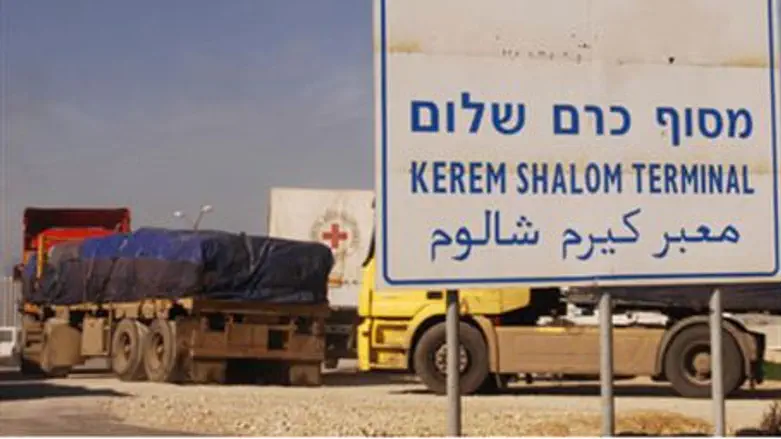
The Gaza Energy Authority announced on Thursday that if fuel doesn't enter the coastal enclave within 72 hours the Hamas-controlled area will face a severe electricity crisis.
“In less than 72 hours if we don’t receive fuel, Gaza will fall into darkness and disability in all aspects of life,” Kanan Obeid, president of the Energy Authority, said.
Hamas has called on Arab and Islamic countries to intervene to prevent a crisis and sought to blame Israel for the shortage, citing an "Israeli ban on construction materials."
The terror group says it has been impossible to rebuild power stations destroyed in Operation Cast Lead early in 2009.
However, Israel began allowing construction materials for pre-approved projects like schools, hospitals, and critical infrastructure to enter Gaza in early 2011 - leading many observers to place the blame on the impending 'crisis' on Hamas.
Hamas, they say, benefits from inaction because any crisis will provide them with fuel for their propaganda machine and allow them to incite local passions against Israel.
The 2010 Palmer Report from the United Nations concluded Israel's blockade of Gaza is legitimate and legal.
“Israel faces a real threat to its security from militant groups in Gaza,” the report says in its opening paragraphs. “The naval blockade was imposed as a legitimate security measure in order to prevent weapons from entering Gaza by sea and its implementation complied with the requirements of international law.”
The IDF oversees the shipment of 6,000 tons of food, fuel, merchandise and building material to Gaza every day and notes the Kerem Shalom crossing is never at full capacity due to all aid requests being met.
In 2011, Gaza residents exported surplus aid supplies to Somalia as a part of a Ramadan charity drive. Local residents have openly complained they have too much aid and not enough economy.
However, the IDF has also launched a program to aid Gaza farmers and manufacturers in exporting their goods to Israel, Jordan, and Egypt. The year's first shipment of 30 tons of produce left Gaza for Jordan on February 5. Furniture exports from Gaza, under Israeli guidance, began last year.
Some observers suggest Israel is doing more for Gaza’s economy than Hamas is.